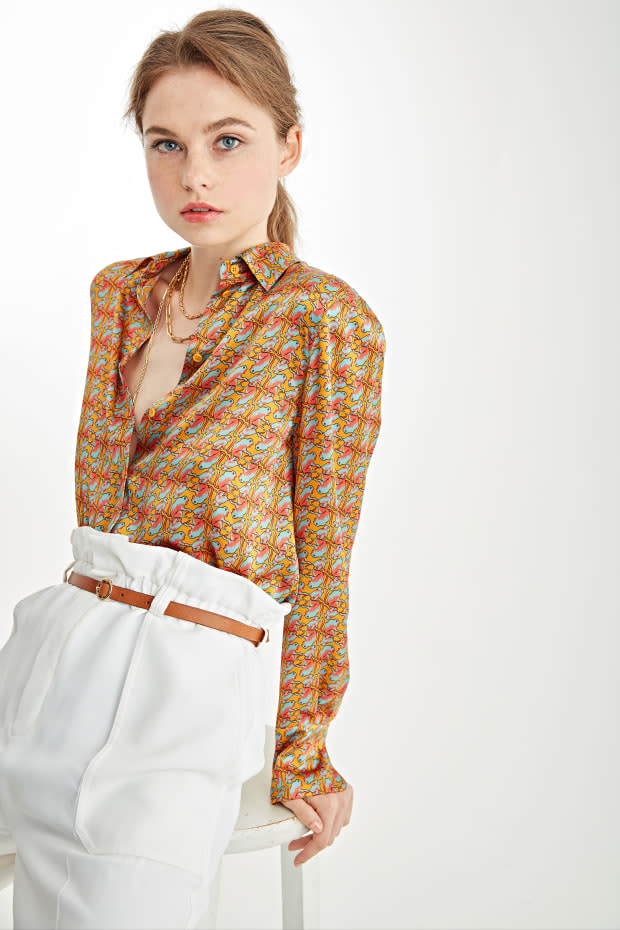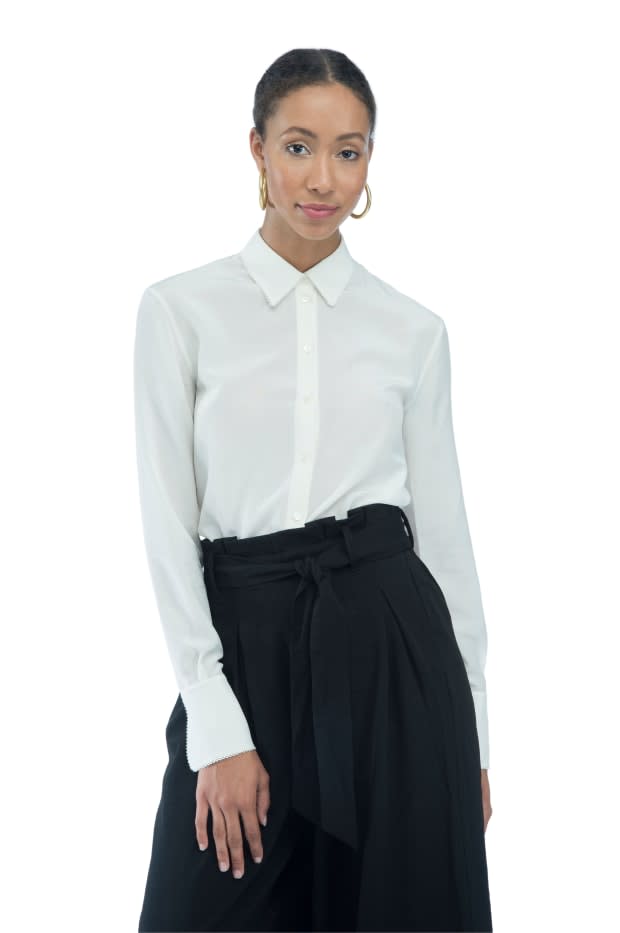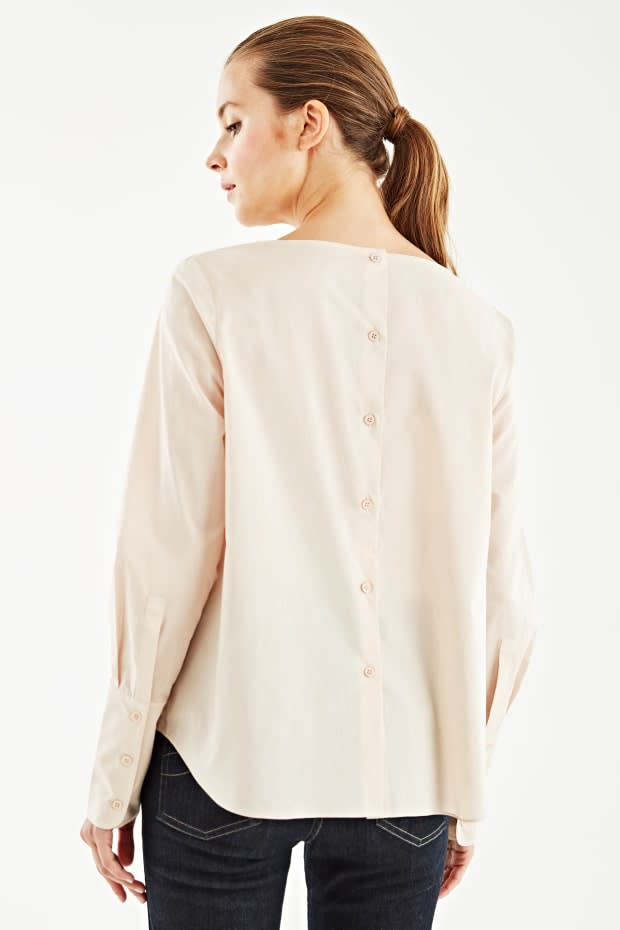Careste Wants to Bring Made-to-Measure Luxury Shirting to Women
Once reserved for men, founder Celeste Markey is aiming to bring perfectly-tailored silk button downs to a new customer base.

For Celeste Markey, there's nothing more empowering than the luxurious feel of a silk, tailored button-down gently caressing the skin. Once almost-exclusively reserved for men, Markey is offering that experience to women through her made-to-measure startup, Careste. Based out of San Francisco, Markey and her fellow founders, Giorgio Armani alum Elizabeth Shah and Hilary Peterson, were tired of the exclusivity of the fashion industry and wanted to offer women a change.
"Women's bodies are all so different, and it feels a little ridiculous how we've grown into this mass-produced, standard sizing mold," Markey says. "We realized no two bodies are the same, and it's ridiculous to think that everything should fit everyone the same."
By offering women the opportunity to custom order shirts according to their precise measurements, Markey may have discovered a way to bend the traditionally inflexible fashion mold. The way it works is surprisingly simple: The Careste website provides a thorough set of online instructions, which guide women through an efficient measuring process. Begin with a basic shirt in five silhouettes, and choose between cotton or silk, sourced from Italian mills that cater to some of Europe's esteemed fashion houses. Next, select your size (Careste currently offers sizes 00-16) and the garment will be tailored accordingly. Each piece is handwoven in Shanghai, and retails roughly between $255 and $395, with limited Italian silks going up to $400.
Markey understands the price tag can feel like a large investment, but she's convinced customers are getting exactly what they pay for. "If you purchase a shirt with us, you're going to have quality, rather than a piece which will fall apart in three weeks," she explains. "The hems aren't going to tear and the fabric will last. Part of what we want to do is educate our consumer on why we choose the more expensive fabric."

Another reason to opt for a shirt that costs $300 over its cheaper counterparts? Sustainability. The more affordable option often comes at the sacrifice of quality, made with cheap fabric that's bad for the environment. Garments crafted from materials like polyester or harmful synthetics bleach out and go into the food chain when placed into the wash. "It's invisible pollution," says Markey. "You or I can't see it, but it's happening at the micro level from all these fibers shedding off of these cheap fabrics; we very much want to move away from that."
After fifteen years of working in the fashion industry, Markey has had a front row seat to witnessing the repercussions mass production has on the environment; with Careste, Markey didn't want those mistakes spilling over. "The cycle of waste has always plagued me, and I've seen it up close," she explains. "If you're not on the inside of the industry, you don't really understand what it takes to bring a collection to life [from a waste production] standpoint. We wanted to embrace a more sustainable lifestyle and we're very happy to have that as a part of our story."
In addition to working with a vertically integrated factory which has its own mill, Markey and her team use only natural fabrics, which create less polyester pollution; using an integrated factory also reduces the amount of crates, which in turn reduces the amount of air travel, therefore reducing the amount of chemicals in the environment. Markey notes that Careste would not be what it is if not for the team of talented women working alongside her. "If you're going to be in the trenches, these are the women you want to be with," she explains. "We're all seasoned within the industry and we have a great dynamic. Everyone is very humble and hardworking and we all work very well together."

Shah, who honed her aesthetic at Giorgio Armani and Sonia Rykiel, explains that Markey has created a collaborative environment for all employees. "In anything entrepreneurial you are making a conscious choice to step outside of your comfort zone," she says. "I find that to be the best part of a startup, and Celeste innately understands this as well and feeds from it as much as I do. We are constantly swapping ideas and shifting our thought process to further better the brand. She has created a great working environment for everyone."
For now, the brand is only specializing in shirts, but hopes to offer women trousers and dresses in the near future. "I see Careste becoming a global luxury brand," Markey says. "We're very removed from the implications down the chain and want to have a positive impact for women and the environment — all women, regardless of where [you are] on the size spectrum. We want to support that in whatever way we can."
The message of Careste translates into an overall labor of love. Being finely attuned to issues not only affecting women, but the environment as well, Markey is making an effort to set an example within the fashion industry.
Want the latest fashion industry news first? Sign up for our daily newsletter.
